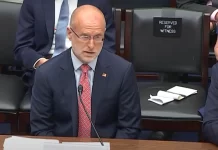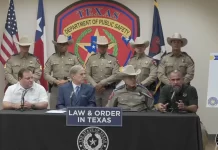Last week, when the pilfered draft of a Supreme Court opinion written by Justice Samuel Alito was leaked to the media, it saddened me deeply. My sadness was brought about by the realization that someone is trying to sabotage the highest court in the land. Justice Robert Jackson, who sat in the 1940s and 1950s, famously said that the Supreme Court is infallible only because it is final; it is not final because it is infallible.
Stated differently, under our system of government, the judiciary has the duty of interpreting the Constitution and federal laws, and it has the final say on what they mean; and the final step in the judiciary is the Supreme Court.
The court does not answer to the people; it is intentionally secret and even obscure. That’s because the whole purpose of an independent judiciary is to be anti-democratic. Its job is to preserve and protect life, liberty and property from the overreach of the popular branches—the president and Congress—and from the states.
The unfairness to the court in general, and to Justice Alito in particular (full disclosure, we are college classmates who disagree on much and remain good friends), is that what was leaked was a work in progress. Any change from the leaked draft to the final opinion will provoke endless speculation.
The leaker is trying to affect the outcome of the case. If from the left, the leaker no doubt wants to shake loose the most tentative justice in the tentative majority. If from the right, the leaker wants to fortify the most tentative justice in the tentative majority.
Either way, the leaker’s work is repellant.
What did Justice Alito write? He wrote that Roe v. Wade—the 1973 case that bars the states from prohibiting abortion during the first and second trimesters of fetal development—was wrong when decided and is wrong today because there is no constitutional text, history or tradition of the federal courts protecting or ruling on abortion.
At the time the Constitution was ratified, abortion was unlawful in all 13 states. In 1868, when the states ratified the 14th Amendment with its Equal Protection Clause, 28 of the then-37 states prohibited abortion. In 1973, 30 states prohibited abortion, four states permitted it outright, 16 permitted it under narrow circumstances, and all states imposed some regulations upon it; and the feds had no laws governing it.
From all of this, Justice Alito and the four other justices in the tentative majority concluded abortion is an issue for the states and not the feds.
There are other problems with Roe that the Alito opinion recognized. Roe’s reasoning did not rely on precedent, science or history. No less an abortion proponent than the late Justice Ruth Bader Ginsburg lamented that the rationale in Roe was made up out of thin air by its author, Justice Harry Blackmun.
Leaving abortion up to the states returns the matter to them and keeps the federal courts and Congress out of it. This liberates states to do as their legislatures wish. They can criminalize all abortion as Louisiana is about to do, or they can legalize all abortion up to the moment of birth as New Jersey has done. California is even considering a bill that would legalize infanticide during the first 28 days after birth.
Should life and death decisions be left up to legislatures, or do all states have a duty to protect all life?
The Equal Protection Clause requires all states to protect life, liberty and property of all persons equally. They cannot, as some of them once did, afford more protection to white lives than to Black lives. Thus, if the baby in the mother’s womb is a person, all abortion is homicide.
Surely, the baby in the womb is a person. She has human parents. From conception, she has all the genomic material in her tiny body needed to develop naturally into a post-natal being. She can sue, be sued and inherit property. The Roe opinion itself concedes that if the baby is a person, then Roe collapses.
It is hard to imagine the mind of a state legislator defining a class of innocent persons as without the right to live. A right is an indefeasible claim against the whole world that comes from God, not from the government. The government creates privileges, which it can condition and take back.
Only God creates rights that are unconditional and integral to our humanity. The right to live is the highest right, as life is the greatest good. There is no right to kill, just the right to defend against a conscious aggressor.
When confronted with an enormous evil—63 million American babies killed in 49 years—should one do all in one’s power to stop this or can one do so incrementally? The Alito opinion chooses the latter.
Were I on the court, I’d have concurred in the outcome—overruling Roe and its progeny—but I’d have done so on the basis of the babies’ personhood.
Abortion is, as former Rep. Ron Paul, an OB-GYN physician, has stated, the ultimate state tyranny because it allows the state to decide whom to protect from homicide and whom to expose to the abortionist’s scalpel and suffocating chemicals. This version of the state is not unlike what existed here with respect to Blacks in the South with slavery or in 1930s and 1940s Germany with respect to the Jewish people.
A government that creates classes of people whom it prefers and classes whom it hates or as to whom it is indifferent should be altered or abolished. The whole business of state-sanctioned killing of innocents is, as San Francisco Archbishop Salvatore Cordileone called it, unfathomable.
But elites in America today prefer personal convenience over innocent life, and they will use tyranny and slaughter to achieve their preferences.
COPYRIGHT 2022 ANDREW P. NAPOLITANO
DISTRIBUTED BY CREATORS.COM
More from Judge Andrew P. Napolitano











[…] post Napolitano: Abortion Should Be Unfathomable appeared first on Heartland Daily […]